
BOOKS - The German Army's Chief of Staff Franz Halder's Diary of the 1941 Russia Camp...

The German Army's Chief of Staff Franz Halder's Diary of the 1941 Russia Campaign, Operation Barbarossa
Author: Phillip Thomas Tucker
Year: 2024
Format: PDF
File size: 49,3 МБ
Language: ENG

Year: 2024
Format: PDF
File size: 49,3 МБ
Language: ENG

Long Detailed Description of the Plot: The German Army's Chief of Staff Franz Halder's Diary of the 1941 Russia Campaign Operation Barbarossa provides a unique insight into the planning and execution of one of history's most devastating military operations. As the chief of staff of the German army, Halder played a crucial role in the invasion of Russia, providing a firsthand account of the campaign's inner workings. The diary offers a detailed look at the strategic decisions made by the German high command, highlighting both their successes and failures. From the initial planning stages to the final retreat, this book offers a comprehensive understanding of the operation's development and implementation. The diary begins with Halder's thoughts on the importance of quickly defeating the Soviet Union, emphasizing the need for speed and decisiveness in the early stages of the campaign. He notes that the German army must be prepared for a long and brutal conflict, but also recognizes the potential for a quick victory if the Soviets are caught off guard. As the operation unfolds, Halder's entries reveal the challenges faced by the German forces, including logistical issues, supply chain disruptions, and the harsh Russian climate. One of the most significant aspects of the diary is Halder's discussion of the tactics employed during the invasion. He details the use of blitzkrieg tactics, which relied heavily on fast-moving tanks and infantry to break through enemy lines and quickly capture key territories.
Long Detailed Description of the Plot: The German Army's Chief of Staff Franz Halder's Diary of the 1941 Russia Campaign Operation Barbarossa предоставляет уникальную информацию о планировании и проведении одной из самых разрушительных военных операций в истории. Будучи начальником штаба немецкой армии, Гальдер сыграл важнейшую роль во вторжении в Россию, предоставив из первых рук отчёт о внутренней работе кампании. Дневник предлагает подробный взгляд на стратегические решения, принятые германским верховным командованием, освещая как их успехи, так и неудачи. От начальных этапов планирования до окончательного отступления, эта книга предлагает всестороннее понимание разработки и реализации операции. Дневник начинается с размышлений Гальдера о важности быстрого разгрома Советского Союза, подчёркивая необходимость скорости и решительности на ранних этапах кампании. Он отмечает, что немецкая армия должна быть готова к длительному и жестокому конфликту, но также признает потенциал для быстрой победы, если Советы будут застигнуты врасплох. По мере развертывания операции записи Гальдера раскрывают проблемы, с которыми сталкиваются немецкие войска, включая логистические вопросы, сбои в цепочке поставок и суровый российский климат. Одним из наиболее значительных аспектов дневника является обсуждение Гальдером тактики, применяемой во время вторжения. Он подробно описывает использование тактики блицкрига, которая в значительной степени полагалась на быстроходные танки и пехоту для прорыва вражеских линий и быстрого захвата ключевых территорий.
Long Detailed Description of the Plot : The German Army's Chief of Staff Franz Halder Diary of the 1941 Russia Camp....Operation Barbarossa fournit des informations uniques sur la planification et la conduite de l'une des opérations militaires les plus destructrices de l'histoire. En tant que chef d'état-major de l'armée allemande, Galder a joué un rôle essentiel dans l'invasion de la Russie en fournissant un rapport de première main sur le travail interne de la campagne. journal offre une vue détaillée des décisions stratégiques prises par le haut commandement allemand, soulignant à la fois leurs succès et leurs échecs. Des premières étapes de la planification à la retraite finale, ce livre offre une compréhension complète du développement et de la mise en œuvre de l'opération. journal commence par une réflexion de Galder sur l'importance de la défaite rapide de l'Union soviétique, soulignant la nécessité de la rapidité et de la détermination au début de la campagne. Il note que l'armée allemande doit être prête à un conflit long et violent, mais reconnaît également le potentiel d'une victoire rapide si les Soviétiques sont pris par surprise. Au fur et à mesure du déploiement de l'opération, les enregistrements de Galder révèlent les problèmes auxquels les troupes allemandes sont confrontées, notamment les problèmes logistiques, les perturbations de la chaîne d'approvisionnement et le climat rude de la Russie. L'un des aspects les plus importants du journal est la discussion de Galder sur les tactiques utilisées pendant l'invasion. Il décrit en détail l'utilisation de la tactique blitzkrieg, qui reposait en grande partie sur les chars rapides et l'infanterie pour briser les lignes ennemies et capturer rapidement les territoires clés.
Descripción detallada de la plataforma: jefe del ejército alemán de Staff Franz Halder's Diary of the 1941 Rusia Campaign Operation Barbarossa proporciona información de planificación única y la realización de una de las operaciones militares más destructivas de la historia. Como jefe de Estado Mayor del ejército alemán, Galder jugó un papel crucial en la invasión de Rusia, proporcionando un informe de primera mano sobre el trabajo interno de la campaña. diario ofrece una visión detallada de las decisiones estratégicas tomadas por el alto mando alemán, destacando tanto sus éxitos como sus fracasos. Desde las fases iniciales de la planificación hasta el retiro final, este libro ofrece una comprensión integral del desarrollo y la implementación de la operación. diario comienza con las reflexiones de Galder sobre la importancia de derrotar rápidamente a la Unión Soviética, enfatizando la necesidad de rapidez y determinación en las primeras etapas de la campaña. Señala que el ejército alemán debe estar preparado para un conflicto largo y violento, pero también reconoce el potencial de una victoria rápida si los soviéticos son tomados por sorpresa. A medida que la operación se despliega, los registros de Galder revelan los problemas que enfrentan las tropas alemanas, incluyendo cuestiones logísticas, fallas en la cadena de suministro y el duro clima ruso. Uno de los aspectos más significativos del diario es la discusión de Halder sobre las tácticas empleadas durante la invasión. Detalla el uso de la táctica blitzkrieg, que dependía en gran medida de tanques e infantería de rápido movimiento para romper las líneas enemigas y capturar rápidamente territorios clave.
Long Detailed Descrizione of the Plot: The German Army's Chief of Staff Franz Halder's Diary of the 1941 Russia Campaign Operation Barbarossa fornisce informazioni uniche sulla pianificazione e l'esecuzione di una delle operazioni militari più devastanti della storia. Come Capo di Stato Maggiore dell'esercito tedesco, Galder ha svolto un ruolo fondamentale nell'invasione della Russia, fornendo di prima mano un rapporto sulle attività interne della campagna. Il diario offre una visione dettagliata delle decisioni strategiche prese dal comando supremo tedesco, mettendo in luce sia i loro successi che i loro fallimenti. Dalle fasi iniziali della pianificazione al ritiro finale, questo libro offre un'ampia comprensione dello sviluppo e dell'implementazione dell'operazione. Il diario inizia con la riflessione di Galder sull'importanza di sconfiggere rapidamente l'Unione Sovietica, sottolineando la necessità di velocità e determinazione nelle prime fasi della campagna. Afferma che l'esercito tedesco deve essere preparato ad affrontare un conflitto lungo e violento, ma riconosce anche il potenziale di una rapida vittoria se i sovietici vengono colti di sorpresa. Con l'implementazione dell'operazione, i registri di Galder rivelano i problemi che le truppe tedesche devono affrontare, tra cui le questioni logistiche, i guasti alla catena di approvvigionamento e il clima duro della Russia. Uno degli aspetti più significativi del diario è il dibattito Galder sulle tattiche applicate durante l'invasione. Descrive in dettaglio l'uso della tattica di blitzkrieg, che si è affidata in gran parte a carri armati veloci e fanteria per sfondare le linee nemiche e prendere rapidamente le aree chiave.
Lang detailliert Beschreibung des Plot: Der deutsche Armeechef Franz Halders Tagebuch der 1941 Russland-Kampagne Operation Barbarossa bietet einzigartige Einblicke in die Planung und Durchführung einer der verheerendsten Militäroperationen der Geschichte. Als Stabschef der deutschen Armee spielte Halder eine entscheidende Rolle bei der Invasion Russlands, indem er aus erster Hand einen Bericht über die inneren Abläufe der Kampagne lieferte. Das Tagebuch bietet einen detaillierten Einblick in die strategischen Entscheidungen des deutschen Oberkommandos und beleuchtet sowohl ihre Erfolge als auch Misserfolge. Von der Anfangsphase der Planung bis zum endgültigen Rückzug bietet dieses Buch einen umfassenden Einblick in die Entwicklung und Umsetzung des Betriebs. Das Tagebuch beginnt mit Halders Überlegungen zur Bedeutung einer schnellen Zerschlagung der Sowjetunion und betont die Notwendigkeit von Schnelligkeit und Entschlossenheit in den frühen Phasen des Feldzugs. Er stellt fest, dass die deutsche Armee auf einen langen und brutalen Konflikt vorbereitet sein muss, erkennt aber auch das Potenzial für einen schnellen eg, wenn die Sowjets überrascht werden. Während der Betrieb rollt, enthüllen Halders Aufzeichnungen die Herausforderungen, vor denen die deutschen Truppen stehen, einschließlich logistischer Probleme, Störungen in der Lieferkette und des rauen russischen Klimas. Einer der wichtigsten Aspekte des Tagebuchs ist Galders Diskussion der Taktik, die während der Invasion angewendet wurde. Er beschreibt detailliert den Einsatz von Blitzkrieg-Taktiken, die stark auf schnelle Panzer und Infanterie angewiesen waren, um feindliche Linien zu durchbrechen und wichtige Gebiete schnell zu erobern.
''
Komplonun Uzun Detaylı Açıklaması: Alman Ordusu Genelkurmay Başkanı Franz Halder'in 1941 Rusya'nın Günlüğü Barbarossa Harekatı Operasyonu, tarihteki en yıkıcı askeri operasyonlardan birinin planlanması ve yürütülmesi konusunda eşsiz bir fikir veriyor. Alman ordusunun genelkurmay başkanı olarak Halder, Rusya'nın işgalinde çok önemli bir rol oynadı ve kampanyanın iç çalışmalarının ilk elden anlatılmasını sağladı. Günlük, Alman yüksek komutanlığının stratejik kararlarına ayrıntılı bir bakış sunuyor ve hem başarılarını hem de başarısızlıklarını vurguluyor. İlk planlama aşamalarından son geri çekilmeye kadar, bu kitap operasyonun geliştirilmesi ve uygulanması hakkında kapsamlı bir anlayış sunmaktadır. Günlük, Halder'in Sovyetler Birliği'nin hızlı yenilgisinin önemi üzerine düşünceleriyle başlar ve kampanyanın ilk aşamalarında hız ve kararlılık ihtiyacını vurgular. Alman ordusunun uzun ve şiddetli bir çatışmaya hazırlıklı olması gerektiğini, ancak Sovyetlerin hazırlıksız yakalanması durumunda hızlı bir zafer potansiyelini de kabul ettiğini belirtti. Operasyon ilerledikçe, Halder'in kayıtları lojistik sorunlar, tedarik zinciri kesintileri ve sert Rus iklimi de dahil olmak üzere Alman birliklerinin karşılaştığı zorlukları ortaya koyuyor. Günlüğün en önemli yönlerinden biri, Halder'in işgal sırasında kullanılan taktikleri tartışmasıdır. Düşman hatlarını kırmak ve kilit bölgeleri hızla ele geçirmek için hızlı hareket eden tanklara ve piyadelere dayanan blitzkrieg taktiklerinin kullanımını detaylandırıyor.
وصف مفصل طويل للمؤامرة: تقدم مذكرات رئيس أركان الجيش الألماني فرانز هالدر لعملية حملة بارباروسا الروسية عام 1941 نظرة ثاقبة فريدة في تخطيط وتنفيذ واحدة من أكثر العمليات العسكرية تدميراً في التاريخ. كرئيس لأركان الجيش الألماني، لعب هالدر دورًا حاسمًا في غزو روسيا، حيث قدم وصفًا مباشرًا للعمل الداخلي للحملة. تقدم اليوميات نظرة مفصلة على القرارات الاستراتيجية التي اتخذتها القيادة الألمانية العليا، مما يسلط الضوء على نجاحاتها وإخفاقاتها. من مراحل التخطيط الأولية إلى المعتكف النهائي، يقدم هذا الكتاب فهمًا شاملاً لتطوير وتنفيذ العملية. تبدأ اليوميات بتأملات هالدر حول أهمية الهزيمة السريعة للاتحاد السوفيتي، مع التأكيد على الحاجة إلى السرعة والحسم في المراحل الأولى من الحملة. ويشير إلى أن الجيش الألماني يجب أن يكون مستعدًا لصراع طويل وعنيف، لكنه يدرك أيضًا إمكانية تحقيق نصر سريع إذا فوجئ السوفييت. مع استمرار العملية، تكشف تسجيلات هالدر عن التحديات التي تواجه القوات الألمانية، بما في ذلك المشكلات اللوجستية وتعطيل سلسلة التوريد والمناخ الروسي القاسي. أحد أهم جوانب اليوميات هو مناقشة هالدر للتكتيكات المستخدمة أثناء الغزو. ويوضح بالتفصيل استخدام تكتيكات الحرب الخاطفة، التي اعتمدت بشكل كبير على الدبابات سريعة الحركة والمشاة لكسر خطوط العدو والاستيلاء بسرعة على المناطق الرئيسية.








 49
49  1 TON
1 TON




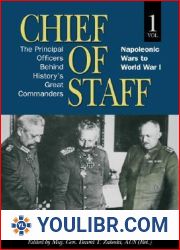

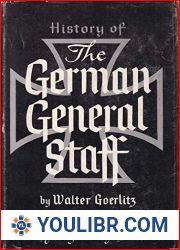

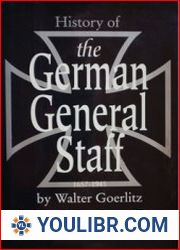










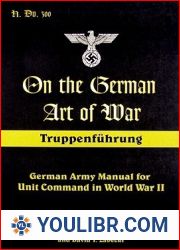











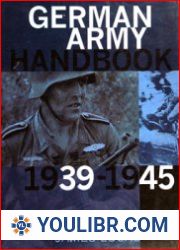
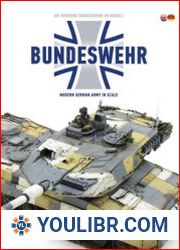

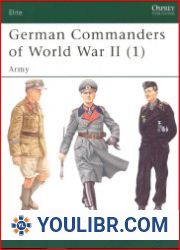
![The German Armored Army [The Illustrated Edition] The German Armored Army [The Illustrated Edition]](https://youlibr.com/img/2/201219.jpg)



